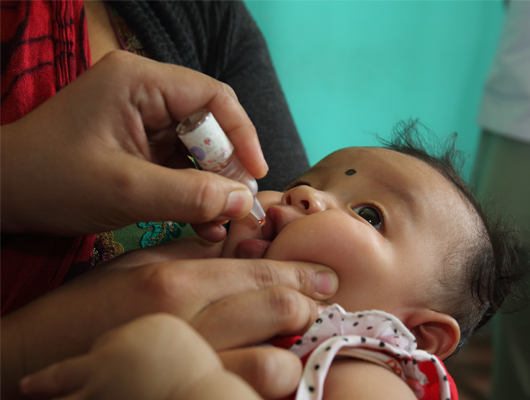Fighting Polio in Pakistan

The focus on the fight against polio has shifted from Africa to Pakistan and Afghanistan, according to the World Health Organization (WHO). There have been no cases in Africa this year, with Nigeria to be removed from the list soon. Africa will have to go with two years of no polio cases before it can be considered “polio-free.”
There have been 34 polio cases this year, 28 of them have occurred in Pakistan and the rest have occurred in Afghanistan. There have been 28 cases of polio in Pakistan, 13 of which occurred in Khyber Pakhtunkhwa and 8 in Peshawar. Just last year, Pakistan saw the highest number of polio cases since 1998, a total of 296 polio cases.
The campaign to end polio faces a number of challenges. These vaccination campaigns have to deal with political instability and internal conflict in the region. They are often attacked by militants who believe immunization teams and polio workers might be a cover for espionage.
The political instability and internal conflict have caused a large population of refugees and slum areas where people are unaccounted for and have little to no access to health care.
There is also a lack of education regarding the effectiveness of polio vaccinations. In the region, there are rumors claiming they cause infertility. Before the vaccine was developed in the 1950s, polio affected everyone, rich and poor, and caused irreversible paralysis within hours.
The good news is, this past year, Pakistan ran its first eradication program. The World Health Organization (WHO) even reported more vaccinations in tribal areas where the government has less control.
WHO estimates that $50 billion could be saved in the next 20 years if polio is eradicated. In contrast, not eradicating polio could lead to 200,000 new cases every year within 10 years. Polio is on track to being the second infectious disease to be eradicated after smallpox.
– Paula Acevedo
Sources: Dawn, Thomson Reuters Foundation
Photo: Google Images
